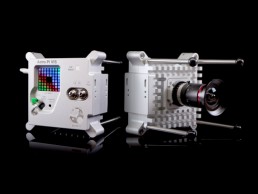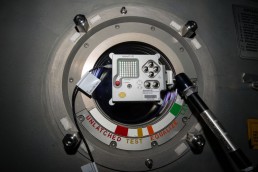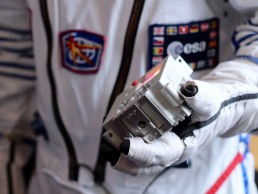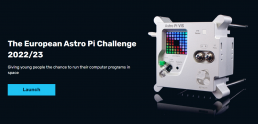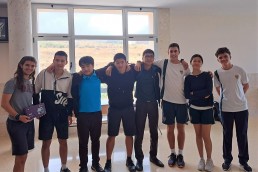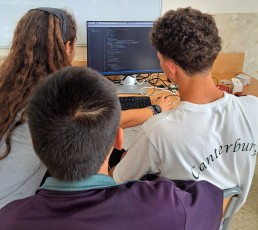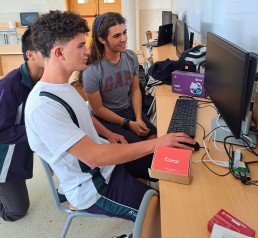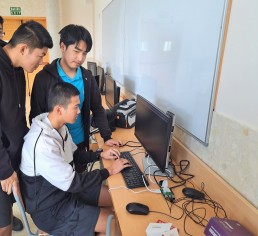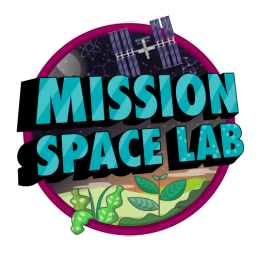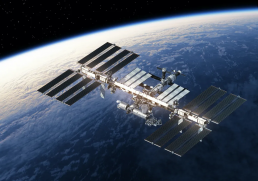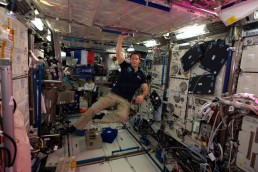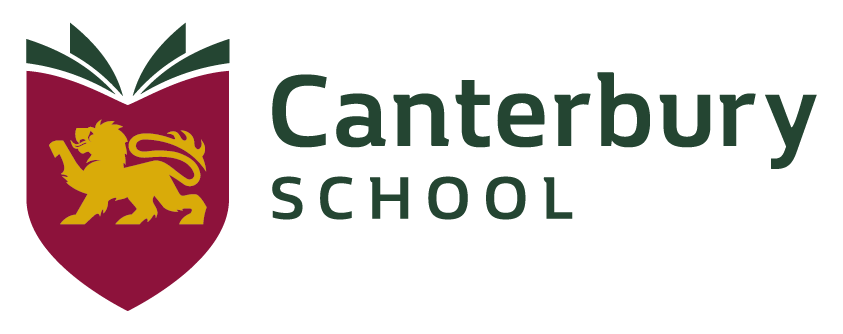Our Secondary students’ experiments achieve Flight Status in Astro Pi competition
Two teams of our Year 11 to Year 13 students progress to Phase 3 of the Astro Pi Mission Space Lab Challenge, using Python to develop experiments for Raspberry Pi hardware.
We are thrilled to announce that both of Canterbury School’s Mission Space Lab teams have achieved Flight Status in the prestigious Astro Pi competition, organised by the European Space Agency (ESA) in collaboration with the Raspberry Pi Foundation. This exciting news means that the teams’ experiments, which were developed using Python programming language, will be sent to the International Space Station (ISS) and conducted by astronauts during April-May 2023.
Astro Pi is an ESA Education project that offers young people the amazing opportunity to conduct scientific investigations in space by writing computer programs that run on Raspberry Pi computers aboard the ISS. The competition consists of four phases: Design, Create, Deploy, and Analyse.
Comprising four students each from Years 11 to 13, our two teams have worked diligently on their respective experiments, focusing on the themes of Life on Earth. Their hard work and dedication have been rewarded with the opportunity to have their experiments run on the ISS, an exceptional achievement for all involved.
During the three-hour runtime, astronauts on the ISS will install the software and run the experiments, after which they will send the results back to the participating teams. This means that the students’ Python code and the Raspberry Pi hardware must work autonomously to record and analyse data (photographs) throughout the duration of the experiment.
Team 1’s experiment centres on identifying ideal locations for solar panel placement on Earth. By analysing images and location data combined with temperature, humidity, and wind information, the team aims to make informed decisions about the best locations for solar panel installation.
Team 2’s experiment investigates the correlation between water quality and areas with different population densities and vegetation. Their experiment focuses on six main parameters: vegetation health, water temperature, water turbidity, water hardness, pH, and dissolved oxygen. They believe that these factors can provide a comprehensive understanding of water quality across the globe.
Upon completion of their experiments on the ISS, the teams will receive their data by the end of May 2023, allowing them to write their final reports and complete the last phase of the Mission Space Lab Challenge.
We are incredibly proud of our students’ accomplishments in developing experiments and wish them the best of luck in the next stage of the Astro Pi competition. Stay tuned for further updates on their progress!
Once again, congratulations to both Canterbury School Mission Space Lab teams!
